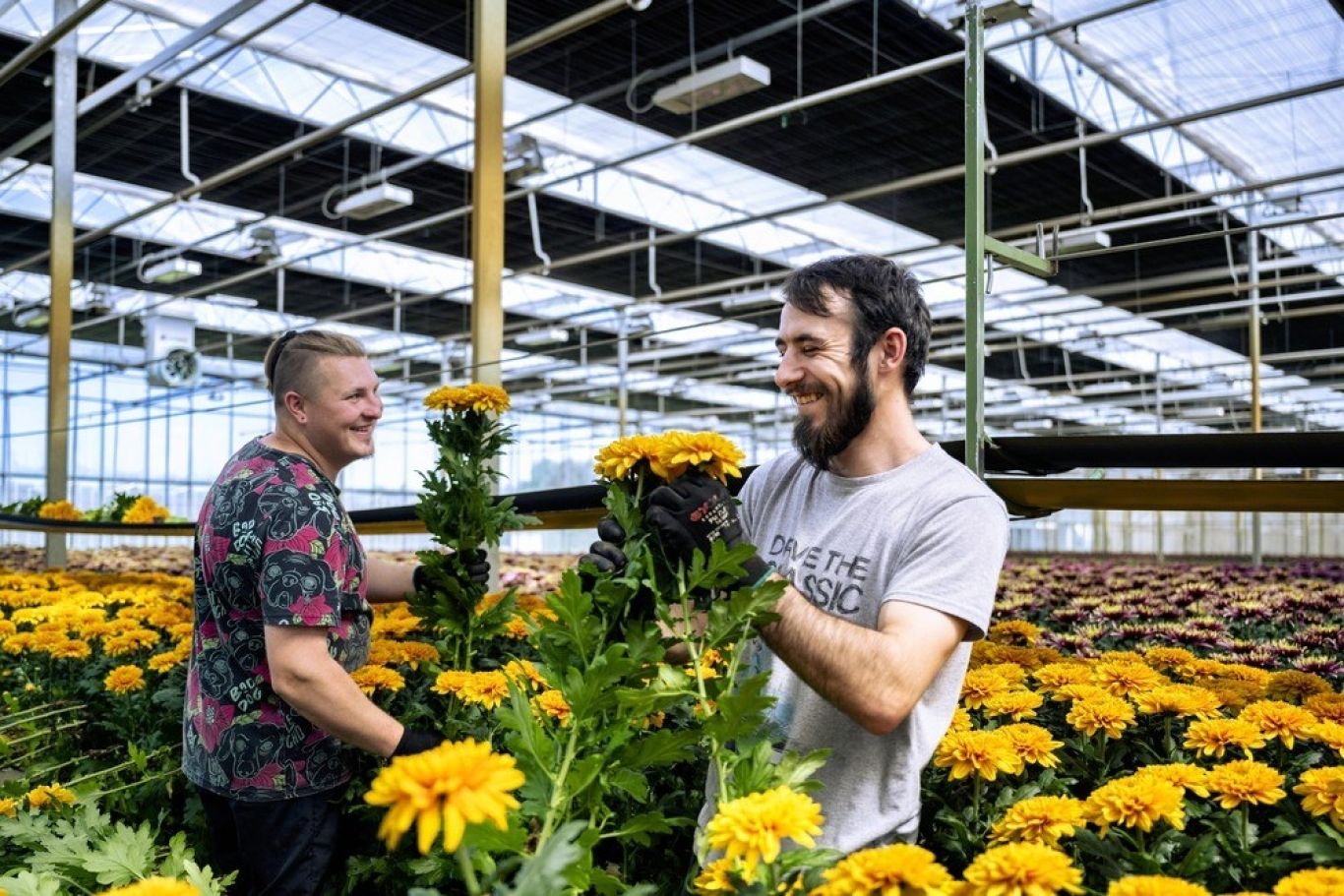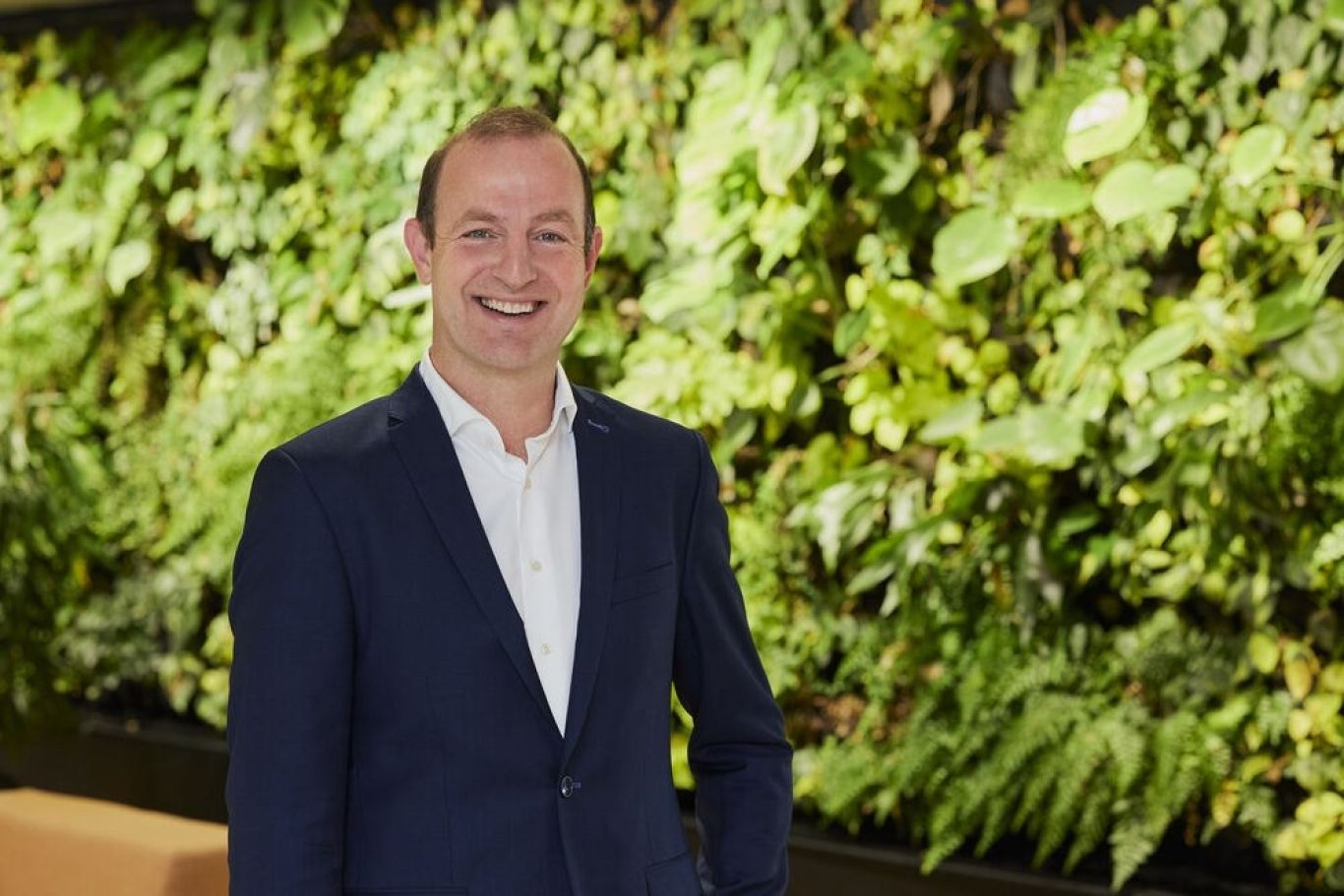Pieter's perspective: May
June 3, 2025

In Pieter's perspective, we give the floor to Pieter Bootsma, CEO of Royal FloraHolland. In this monthly column, he shares his perspective on the past month.
Good results, strong commitment
They say: “May not too cold and not too wet, fills the barn and also the barrel”. That was certainly true for us. Thanks to Mother's Day in the Netherlands and France, combined with favourable weather, we saw a significant increase in volume in May. Our logistics colleagues did a fantastic job during this busy period to keep everything running smoothly. To lend a helping hand, many colleagues from the office also stepped in as peak helpers in logistics, myself included. This commitment is not only useful, but also educational and brings us closer together. Thank you to everyone for this.
During the peak period, we also took measures such as early delivery days and flexible time slots for deliveries. These adjustments helped us to keep our services reliable and predictable, especially during the busiest times.
RFH's April results were also published in May, and these give us confidence for the rest of the year. Product revenues were strong, and thanks to tight cost control, the result exceeded the budget. This is a nice confirmation that focus and cooperation really do pay off.
Criticism and transparency in the media
The peak period is traditionally a time when our sector comes under extra scrutiny. In May in particular, there was a lot of negative reporting about crop protection in floriculture, often with incorrect conclusions and facts. Meanwhile, consumers, who continue to buy our beautiful flowers and plants, are hardly mentioned. What's more, the studies cited are unreliable in terms of both methodology and validation.
This is also evident from a recent news article in the Leidsch Dagblad about one of our members, Van der Slot, in which a political party in Haarlem wrongly suggested that chemical agents were being used. Royal FloraHolland therefore took a proactive role on Mother's Day: by sharing a factual press release about the significant decline in the use of these substances (35% in 10 years) – and in particular the most harmful varieties (78%) – we are contributing to a more accurate picture of the sector.
I would particularly like to call on our growers to ensure that they provide joint data, such as from certification, in addition to impeccable business conduct. After all, reputation is 80% behaviour. Intensive cooperation with other parties in the sector is also crucial in order to be able to come forward with the right stories and data at the right time. Experts and scientists also play an important role in this. Their insights help to put the image into perspective. We are also entering into dialogue with parties that conduct scientific research, such as Wageningen University & Research, which is currently investigating how good flowers and plants are for our well-being. Finally, setting up our own residue monitoring system within the sector is a very important step for the future.
Collaborating on the future of the sector
For me, May was also a month dedicated to strengthening joint ventures within the sector. I spoke with Adri Bom-Lemstra and Ruud Paauwe from Glastuinbouw Nederland, Mark Jan Terwindt from Royal Anthos and Hester Maij, general chair of the KAVB, among others. With Hester, I discussed, among other things, the joint efforts and timelines in the transition of the flower bulb sector. These were valuable discussions; it remains crucial to continue to work together across the sector.
In May, attention was also paid to the future positioning of Plants & Flowers Foundation Holland (formerly known as Bloemenbureau Holland), precisely because proactive sector communication is so crucial at this moment. I had several meetings about this, including Plants & Flowers Foundation Holland annual event in Aalsmeer. In the context of public-private partnerships (PPS), I also had an introductory meeting with Meindert Stolk, Deputy for the Province of South Holland, who is very supportive of the sector. Finally, there was a working visit by David van Weel, Minister of Justice and Security, in the context of Resilient Floriculture. These meetings show that cooperation on content and image remains essential – both within and outside the sector.
Focus on strategy and cooperation
Over the past few months, we have been working step by step on the further elaboration of our strategy. The focus was on four interrelated themes: the implementation of Strategy 2030, the investment plan for our real estate portfolio, the financing of these investments and, finally, strengthening the cooperative in collaboration with our members.
Until April, we focused primarily on the first three topics, which are closely related to our ambitions for the future and the resources needed to achieve them. In the coming period, the focus will shift to the fourth theme: the further development of the cooperative model. This includes forms of commitment, member packs, rate structures and the future of the volume discount. As a cooperative, our members have rights and obligations. We are discussing this with the Supervisory Board and the members' council sounding board group, with the aim of outlining the first contours of the development direction at the members' council meeting on 19 June. I look forward to the further dialogue.
Good results, strong commitment
They say: “May not too cold and not too wet, fills the barn and also the barrel”. That was certainly true for us. Thanks to Mother's Day in the Netherlands and France, combined with favourable weather, we saw a significant increase in volume in May. Our logistics colleagues did a fantastic job during this busy period to keep everything running smoothly. To lend a helping hand, many colleagues from the office also stepped in as peak helpers in logistics, myself included. This commitment is not only useful, but also educational and brings us closer together. Thank you to everyone for this.
During the peak period, we also took measures such as early delivery days and flexible time slots for deliveries. These adjustments helped us to keep our services reliable and predictable, especially during the busiest times.
RFH's April results were also published in May, and these give us confidence for the rest of the year. Product revenues were strong, and thanks to tight cost control, the result exceeded the budget. This is a nice confirmation that focus and cooperation really do pay off.
Criticism and transparency in the media
The peak period is traditionally a time when our sector comes under extra scrutiny. In May in particular, there was a lot of negative reporting about crop protection in floriculture, often with incorrect conclusions and facts. Meanwhile, consumers, who continue to buy our beautiful flowers and plants, are hardly mentioned. What's more, the studies cited are unreliable in terms of both methodology and validation.
This is also evident from a recent news article in the Leidsch Dagblad about one of our members, Van der Slot, in which a political party in Haarlem wrongly suggested that chemical agents were being used. Royal FloraHolland therefore took a proactive role on Mother's Day: by sharing a factual press release about the significant decline in the use of these substances (35% in 10 years) – and in particular the most harmful varieties (78%) – we are contributing to a more accurate picture of the sector.
I would particularly like to call on our growers to ensure that they provide joint data, such as from certification, in addition to impeccable business conduct. After all, reputation is 80% behaviour. Intensive cooperation with other parties in the sector is also crucial in order to be able to come forward with the right stories and data at the right time. Experts and scientists also play an important role in this. Their insights help to put the image into perspective. We are also entering into dialogue with parties that conduct scientific research, such as Wageningen University & Research, which is currently investigating how good flowers and plants are for our well-being. Finally, setting up our own residue monitoring system within the sector is a very important step for the future.
Collaborating on the future of the sector
For me, May was also a month dedicated to strengthening joint ventures within the sector. I spoke with Adri Bom-Lemstra and Ruud Paauwe from Glastuinbouw Nederland, Mark Jan Terwindt from Royal Anthos and Hester Maij, general chair of the KAVB, among others. With Hester, I discussed, among other things, the joint efforts and timelines in the transition of the flower bulb sector. These were valuable discussions; it remains crucial to continue to work together across the sector.
In May, attention was also paid to the future positioning of Plants & Flowers Foundation Holland (formerly known as Bloemenbureau Holland), precisely because proactive sector communication is so crucial at this moment. I had several meetings about this, including Plants & Flowers Foundation Holland annual event in Aalsmeer. In the context of public-private partnerships (PPS), I also had an introductory meeting with Meindert Stolk, Deputy for the Province of South Holland, who is very supportive of the sector. Finally, there was a working visit by David van Weel, Minister of Justice and Security, in the context of Resilient Floriculture. These meetings show that cooperation on content and image remains essential – both within and outside the sector.
Focus on strategy and cooperation
Over the past few months, we have been working step by step on the further elaboration of our strategy. The focus was on four interrelated themes: the implementation of Strategy 2030, the investment plan for our real estate portfolio, the financing of these investments and, finally, strengthening the cooperative in collaboration with our members.
Until April, we focused primarily on the first three topics, which are closely related to our ambitions for the future and the resources needed to achieve them. In the coming period, the focus will shift to the fourth theme: the further development of the cooperative model. This includes forms of commitment, member packs, rate structures and the future of the volume discount. As a cooperative, our members have rights and obligations. We are discussing this with the Supervisory Board and the members' council sounding board group, with the aim of outlining the first contours of the development direction at the members' council meeting on 19 June. I look forward to the further dialogue.
-
Did you find this interesting?
Then share this article

